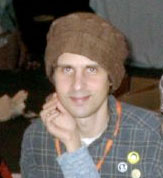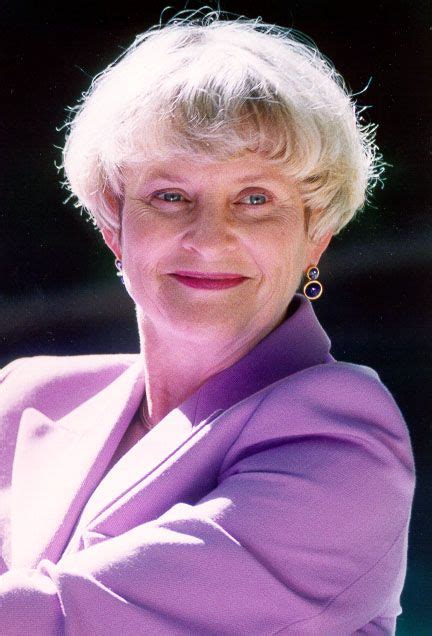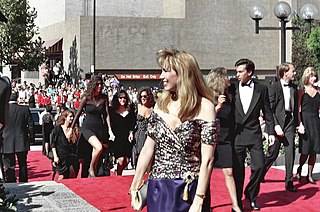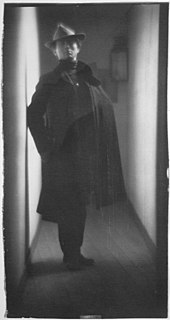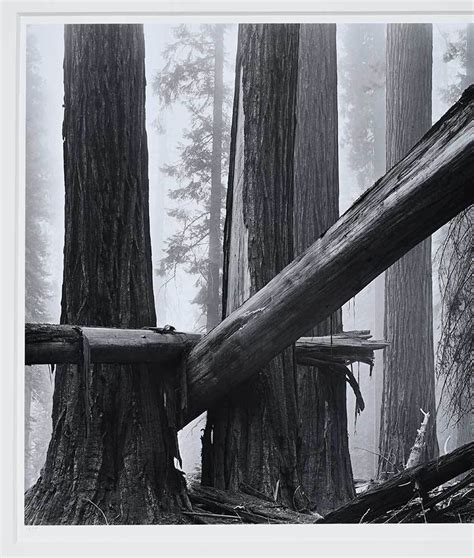Top 1200 Leopard Print Quotes & Sayings - Page 20
Explore popular Leopard Print quotes.
Last updated on November 8, 2024.
Everyone in our clique rocks a black bandana with the print 'EST 19XX' on them 24/7. As the underdog, you are expected to lose or give up and 'wave the white towel,' so that is why our flag is black. We never give up - never surrender. EST means 'Everyone Stands Together.' The '19XX' is to represent any age.
With my friends, it was always essentially true stories. That's how I always felt about doing King-Cat. This is something that really happened, whether it makes me look good or bad, or someone else look good or bad. This is what happened, and it's my job in life to write it down. Nowadays, I'm a lot more conscientious about it. I'm not out to attack somebody in print.
As somebody who's kind of a technophile, I'm interested in how traditional and digital publishing connect. Maybe ten years ago they were seen as antagonists, but now they complement each other. There's data that shows digital sales actually drive print sales. And even the ways in which pictures and words, text and image, interact - we're seeing these books that are very hard to categorize. All of that is very exciting to me.
It would be worthy of the age to print together the collected Scriptures or Sacred Writings of the several nations, the Chinese, the Hindoos, the Persians, the Hebrews, and others, as the Scripture of mankind. The New Testament is still, perhaps, too much on the lips and in the hearts of men to be called a Scripture in this sense. Such a juxtaposition and comparison might help to liberalize the faith of men.... This would be the Bible, or Book of Books, which let the missionaries carry to the uttermost parts of the earth.
Literacy is part of everyday social practice - it mediates all aspects of everyday life. Literacy is always part of something else - we are always doing something with it. Its what we choose to do with it that is important. There are a range of contemporary literacies available to us - while print literacy was the first mass media, it is now one of the mass media.
The issues for journalism and journalists, we see obvious places where presentation is very different in a digital space from traditional print. If you go to a New York Times homepage, you cannot get to a story about the Ukraine without a click-off on a banner ad or a slide show. They're not alone in that - you think you're clicking on a video about a news event and you have a 30-second ad that you have to watch before you can get to it.
The bookstore was a parking lot for used graveyards. Thousands of graveyards were parked in rows like cars. Most of the books were out of print, and no one wanted to read them any more and the people who had read the books had died or forgotten about them, but through the organic process of music the books had become virgins again.
The dilemma of our age is the combination of unprecedented material progress and systematic spiritual decline. The decline in public and private morality can be witnessed in the marketplace as well as the forums of international diplomacy. In the past, a man's honor and reputation were his most valuable assets. Business agreements were made with a handshake. Today one might be well advised to check the "bottom line" and read the "small print."
In common with other artists the photographer wants his finished print to convey to others his own response to his subject. In the fulfillment of this aim, his greatest asset is the directness of the process he employs. But this advantage can only be retained if he simplifies his equipment and technic to the minimum necessary, and keeps his approach from from all formula, art-dogma, rules and taboos. Only then can he be free to put his photographic sight to use in discovering and revealing the nature of the world he lives in.
I love the book. I love the feel of a book in my hands, the compactness of it, the shape, the size. I love the feel of paper. The sound it makes when I turn a page. I love the beauty of print on paper, the patterns, the shapes, the fonts. I am astonished by the versatility and practicality of The Book. It is so simple. It is so fit for its purpose. It may give me mere content, but no e-reader will ever give me that sort of added pleasure.
Computer chips will cost about a penny. That's the cost of scrap paper. The Internet will be basically for free and it will be inside our contact lens. When we blink, we will go online. When we see somebody that we don't recognize, our contact lens will identify who they are, print out their biography in your contact lens and translate, if they're speaking Chinese, into English with subtitles as they speak.
I am concerned about the erraticness of the dollar. The dollar is up, the dollar is down. We print a lot of dollars. The dollar gets devalued. That is really the concern. If people think the gold price up and down is a reflection of something wrong with gold, no - I say it is something wrong with the dollar.
The way you hold the bow, the way that violinists are trained to produce a note, is really different. I'm not an expert in classical music. I don't want to say something that ends up in print and somebody comes running after me with a shovel, but they're taught for each note to stand alone in a very deliberate kind of way, which is really different than how notes are strung together in old-time music to create rhythm.
Well into the 19th century there were pronouncements from just about every branch of science and medicine that reading, writing, and thinking were dangerous for women. Articles in the Lancet declared that women's brains would burst and their uteruses atrophy if they engaged in any form of rigorous thinking. The famous physician J.D. Kellogg insisted that novel reading was the greatest cause of uterine disease among young women and urged parents to protect their daughters from the dreaded consequences of print.
It ticks me no end when people get ticked off at those of us who comment audibly and in print on events and problems. That's what we're paid for. Why clutter up your mind with a bunch of facts that might inhibit the solve-ability of us who must express an opinion? After all, all the world cries out for a solution to its problems, and we supply them right and left. Come to think of it, it's we who should be giving our deplorers and detractors the blast; because 99% of the time they don't do as we say.
There is this ferocious digital revolution coming along and we're in the teeth of that at the time of maximum economic disruption. There are huge opportunities there. I made the point in my supplementary statement that the Guardian is now a very considerable global player, but there are huge challenges in terms of making, of finding, the convincing business model, so I want to see Guardian journalism continue and thrive, although whether and to what extent that is in print or in digital is a sort of second order matter.
The way we get to live forever is through memories stored in the hearts and souls of those whose lives we touch. That's our soul print. It's our comfort, our emotional nourishment at the end of the day and the end of a life. How wonderful that they are called up at will and savored randomly. It seems to me we should spend our lives in a conscious state of creating these meaningful moments that live on. Memories matter.
As people get their opinions so largely from the newspapers they read, the corruption of the schools would not matter so much if the Press were free. But the Press is not free. As it costs at least a quarter of a million of money to establish a daily newspaper in London, the newspapers are owned by rich men. And they depend on the advertisements of other rich men. Editors and journalists who express opinions in print that are opposed to the interests of the rich are dismissed and replaced by subservient ones.
Most of the photographs I make are personal pictures and never end up in print. Even the magazines I shoot for on assignment publish very few of the actual selects. Sometimes these personal pictures will end up in a book of my work. Oftentimes, however, they are simply photographs which I hope resonate, yet rarely find a publication home. I do a lot of personal work in Rio de Janeiro, and this of a parkour artist making a jump on Ipanema Beach is such a moment.
Advances in the technology of communications have proved an unambiguous threat to totalitarian regimes: Fax machines enable dissidents to bypass state-controlled print media; direct-dial telephone makes it difficult for a state to control interpersonal voice communication; and satellite broadcasting makes it possible for information-hungry residents of many closed societies to bypass state-controlled television channels.
It seems to me the book has not just aesthetic values - the charming little clothy box of the thing, the smell of the glue, even the print, which has its own beauty. But there's something about the sensation of ink on paper that is in some sense a thing, a phenomenon rather than an epiphenomenon. I can't break the association of electric trash with the computer screen. Words on the screen give the sense of being just another passing electronic wriggle.
I know some say, let us have good laws, and no matter for the men that execute them: but let them consider, that though good laws do well, good men do better: for good laws may want good men, and be abolished or evaded [invaded in Franklin's print] by ill men; but good men will never want good laws, nor suffer ill ones.
No tabloid will ever print the startling news that the mummified body of Jesus of Nazareth has been discovered in old Jerusalem. Christians have no carefully embalmed body enclosed in a glass case to worship. Thank God, we have an empty tomb. The glorious fact that the empty tomb proclaims to us is that life for us does not stop when death comes. Death is not a wall, but a door.
I like what I do. Some writers have said in print that they hated writing and it was just a chore and a burden. I certainly don't feel that way about it. Sometimes it's difficult. You know, you always have this image of the perfect thing which you can never achieve, but which you never stop trying to achieve. But I think ... that's your signpost and your guide. You'll never get there, but without it you won't get anywhere.
What the U.S. does is it continues to print money when the economic situation gets difficult. This is what happened in the last depression during the summer of 2008 when they tried to resolve the economic crisis by printing valueless money. This is the business privilege given to them at the famous conference of Bretton Woods in 1944 when the United States emerged as the superpower after Europe and the rest of the world, mainly Europe, that had collapsed because of the war.
If the United States haven't grown poets, on any scale of grandeur, it is certain that they import, print, and read more poetry than any equal number of people elsewhere -- probably more than the rest of the world combined. Poetry (like a grand personality) is a growth of many generations -- many rare combinations. To have great poets, there must be great audiences too.
This was an age before e-books. We all knew that the only way you can allow a book to survive in print in the long term is in paperback. The hardback has a certain life, and then it stops having that. It stops selling, and if you want the book to just stay around there has to be a paperback edition. So if there were not a paperback edition the book would eventually disappear from the shelves, and we would have lost the battle.
Today, in 2011, if you go and buy a color laser printer from any major laser printer manufacturer and print a page, that page will end up having slight yellow dots printed on every single page in a pattern which makes the page unique to you and to your printer. This is happening to us today. And nobody seems to be making a fuss about it.
We have brands spending ungodly amounts of money on print, television, outdoor radio, programmatic banner ads, website takeovers. Garbage. When I say garbage, they work-ish. They're just so overpriced. I don't know what else to say. I do not believe that it is worth the hundreds of thousands of dollars in distribution and hundreds of thousands of dollars in cost to make one 30-second video to tell a 29-year-old woman that your soap is great, in a world where she is not going to consume that commercial.
The current publishing scene is extremely good for the big, popular books. They sell them brilliantly, market them and all that. It is not good for the little books. And really valuable books have been allowed to go out of print. In the old days, the publishers knew that these difficult books, the books that appeal only to a minority, were very productive in the long run. Because they're probably the books that will be read in the next generation.
News at Work is a vivid, inside look at the collision of print journalism and electronic media. Based on close access to the leading news organizations in Buenos Aires, Boczkowski documents how contemporary journalism is caught in the grip of emulation; this spiral of imitation exacerbated further by global news media and their intensifying homogenization. The portrait of this transformation of the news is both fascinating and deeply worrying, and is guaranteed to provoke debate.
Anyway, when I finished the book, I handed it in, didn't want to read it again, but when it finally was in print I felt like OK, I have to read this. And yeah, I thought God, this is petty, this is silly, too emotional, too raw...and maybe it was then, but now it all seems that it's so much better because all the stuff that felt petty and silly now seems more relevant because Andy was so important.
My instinct tells me "purpose" is maybe the enemy of a good personal essay. In my own experience, I'm always lost and wandering and searching - where am I? how'd I get in this mess? what's the point? - right through to the final draft, and sometimes even beyond that - baffled and defeated still, confused as to purpose long after the thing's in print. I never really have a guiding purpose or a point, not at the outset, anyway. It's like life: It's all discovered en route.
Today, although as a whole, the industry is still male-dominated, more women are drawing comics than ever before, and there are more venues for them to see their work in print. In the 1950s, when the comic industry hit an all-time low, there was no place for women to go. Today, because of graphic novels, there's no place for aspiring women cartoonists to go but forward.
To put it another way, every love relationship is based upon unwritten conventions rashly agreed upon by the lovers during the first weeks of their love. On the one hand, they are living a sort of dream; on the other, without realizing it, they are drawing up the fine print of their contracts like the most hard-nosed of lawyers. O lovers! Be wary during those perilous first days! If you serve the other party breakfast in bed, you will be obliged to continue same in perpetuity or face charges of animosity and treason!
The outfit is inspired by Alice in Wonderland. It's kind of about a surprise, because when Alice goes down the rabbit hole, she finds all these things that are so surprising. This outfit is about having a surprise in a tennis dress, and showing some skin and then just having a print. Prints don't happen that often in tennis. So it's called the Wonderland dress.
Christmas begins what Easter celebrates. The child in the cradle became the king on the cross. And because he did, there are no marks on my record. Just grace. His offer has no fine print. He didn't tell me, "Clean up before you come in." He offered, "Come in, and I'll clean you up." It's not my grip on him that matters but his grip on me. And his grip is sure. So is his presence in my life.
A foolhardy lot, we accepted it all, as we always do, never asked: "What is going to happen to us now, with this invention of print?" In the same way, we never thought to ask, "How will our lives, our way of thinking, be changed by the internet, which has seduced a whole generation with its inanities so that even quite reasonable people will confess that, once they are hooked, it is hard to cut free, and they may find a whole day has passed in blogging etc?"
The Canon AE1 - a fully manual camera. [My mother] had a 50mm, which is a standard lens, and then I got a 28mm. Then I started a little punk magazine, a zine, when I was 14 or 15 years old. I was shooting my friends skateboarding and it was the beginning of the Macintosh. We wouldn't do layouts on the computer; we would pick the font and then type up a paragraph and then print it out and cut it up and put it in a little mock-up and Xerox it.
I am trying to get the hang of this new fangled writing machine, but I am not making a shining success of it. However, this is the first attempt I have ever made & yet I perceive I shall soon & easily acquire a fine facility in its use. ... The machine has several virtues. I believe it will print faster than I can write. One may lean back in his chair & work it. It piles an awful stack of words on one page. It don't muss things or scatter ink blots around. Of course it saves paper.
Among all the complaints you hear these days about the crimes of the media, it seems to me the critics miss the big one. It is that especially TV, but also we of the print press, tend to reduce mess and complexity and ambiguity to a simple story line that doesn't reflect reality so much as it distorts it. ... What bothers me about the journalistic tendency to reduce unmanageable reality to self-contained, movielike little dramas is not just that we falsify when we do this. It is also that we really miss the good story.
The newspaper stories were like dreams to us, bad dreams dreamt by others. How awful, we would say, and they were, but they were awful without being believable. They were too melodramatic, they had a dimension that was not the dimension of our lives. We were the people who were not in the papers. We lived in the blank white spaces at the edges of print. It gave us more freedom. We lived in the gaps between the stories.
Books. They are lined up on shelves or stacked on a table. There they are wrapped up in there jackets, lines of neat print on nicely bound pages. They look like such orderly, static things. Then you, the reader come along. You open the book jacket, and it can be like opening the gates to an unknown city, or opening the lid of a treasure chest. You read the first word and you're off on a journy of exploration and discovery.
I didn't think [Ella Enchanted] would get published. Everything I'd written till then had been rejected. If it was published, I thought it might sell a few thousand copies and go out of print. I thought if I was lucky I could write more books and get them published, too. I still pinch myself over the way things have worked out.
In the North, the sale of government bonds was the one measure for raising funds that seemed to work. Even that, however, with the lure of compounded interest to be paid in gold at a future date, failed to raise more than about half the needed amount. So the Union faced a real dilemma. The only options remaining were (1) terminate the war or (2) print fiat money. For Lincoln and the Republicans who controlled Congress, the choice was never seriously in doubt.
Our works in stone, in paint, in print, are spared, some of them, for a few decades or a millennium or two, but everything must finally fall in war, or wear away into the ultimate and universal ash - the triumphs, the frauds, the treasures and the fakes. A fact of life: we're going to die. "Be of good heart," cry the dead artists out of the living past. "Our songs will all be silenced, but what of it? Go on singing." Maybe a man's name doesn't matter all that much.
We did a campaign here with New York Times. We had a great ad: "Today in America, someone will kill an elephant for a bracelet." We became sensitized in our society. Now there are four or five billion people in Asia who need to get this message. We need to use social media, print magazines, celebrities - anything we can to share this message. It's not cool, it's not okay. You are destroying beautiful animals. You are robbing a continent of its wealth. And you are hurting a lot of innocent people.
Then she did something that really surprised me. She blinked back tears and put out her arms. I stepped forward and hugged her. Butterflies started turning my stomach into a mosh pit. "Hey, it's... it's okay." I patted her back. I was aware of everything in the room. I felt like I could read the tiniest print on any book on the shelves. Annabeth's hair smelled like lemon soap. She was shivering.
I am pretty sure central banks will continue to print money, and the standards of living for people in the western world, not just in America, will continue to decline because the cost of living increases will exceed income. The cost of living will also go up because all kinds of taxes will increase.
Some day there may be... machinery that needs but to be wound up and sent roaming o'er hill and dale, through fields and meadows, by babbling brooks and shady woods - in short, a machine that will discriminately select its subject and, by means of a skillful arrangement of springs and screws, compose its motif, expose the plate, develop, print, and even mount and frame the result of its excursion, so that there will be nothing for us to do but to send it to the Royal Photographic Society's exhibition and gratefully to receive the 'Royal Medal'.
The newspaper industry when I came along in the mid-70s was rich and powerful and growing and hungry for material and open to new people. None of that is true in the newspaper industry today. Print in general is pretty rugged. The good thing is that you can gain a foothold on the Internet because everybody has access to it, even things like Twitter - I mean, you can get a reputation for being funny pretty quickly on Twitter, on a blog, that kind of thing.
Very commonly I get queries. Somebody saw something of mine on YouTube and of course if there is a talk on YouTube, there aren't any footnotes - and they want to know why did you say this. Well if they bothered to look up something in print, they would've seen why I said that. If they ask for evidence, I just say well take a look and mention something they can read and that usually ends the conversation.
I think the irony of modern life is that our data, our highly personal information, has been taken from us, but in many cases it was given away freely by us. We willfully, consciously or unconsciously, acquiesced and gave it away for a new app, you know? For the products that we have. We didn't read the fine print, or don't even really care and didn't really check to see if we could opt out. No one had to steal it from us.
The photographic enthusiast likes to lure us into a darkened room in order to display his slides on a silver screen. Aided by the adaptability of the eye and by the borrowed light from the intense projector bulb, he can achieve those relationships in brightness that will make us dutifully admire the wonderful autumn tints he photographed on his latest trip. As soon as we look at a print of these photographs by day, the light seems to go out of them. It is one of the miracles of art that the same does not happen there.
It will be as if I'd never existed. The words ran through my head, lacking the perfect clarity of my hallucination last night. They were just words, soundless, like print on a page. Just words, but they ripped the hole wide open, and I stomped on the brake, knowing I should not drive while this incapacitated. I curled over, pressing my face against the steering wheel and trying to breathe without lungs.
Women are books, and men the readers be, Who sometimes in those books erratas see; Yet oft the reader's raptured with each line, Fair print and paper, fraught with sense divine; Tho' some, neglectful, seldom care to read, And faithful wives no more than bibles heed. Are women books? says Hodge, then would mine were An Almanack, to change her every year.
Be sure to incorporate your pooch into your daily activities to make her feel like a true family member. You can do this by signing your dog's name - or her paw print - on birthday cards, by getting 'from our dog to your dog' holiday cards, or by including your dog when asked the number of family members in your household. These small, considerate actions will make you an ideal petowner.
I'd really rather leave it to others to say what they see in it and to see if I've put something into my photographs beyond a mere recording. Yes, I've chosen the camera position, how I'm going to print the negative, the angel of the lens, what I'm going to include and exclude in the composition, so on and so forth. But, I'm still photographing a work of art, and I would rather leave it to others to comment on my work, as I just left it to you.
Here in the UK, we've now got an evangelical television channel - it's the kind of thing that will be very familiar to everyone in the United States, especially if you've ever turned on your TV set on a Sunday morning, and seen one holy man after another, urging you to send money so that Jesus can buy a new cadillac. Apparently, Jesus can't save the world until he's been properly kitted out with a million-dollar mansion, and a private jet - some small print in the Gospels that we must have missed.

